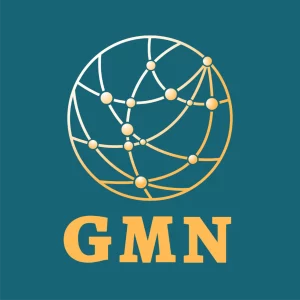
This language video lesson is designed for 6 to 12-year-old children to help them understand how to conjugate verbs in the future tense.
In our previous video lesson, we learned about the concept of verb conjugation and how to do verb conjugation in the past tense. In this video, we will learn future tense conjugation.
What is Verb Conjugation?
A verb can be conjugated in many ways depending on its person, tense, number, or mood. It clarifies when an action is occurring and who is performing it.
Rules of Verb Conjugation
A. Person (Who is Performing an Action):
In the English language, there are six different persons:
- First-person singular: I,
- Second-person singular: you,
- Third-person singular: he/she/it,
- First-person plural: we,
- Second-person plural: you,
- Third-person plural: they.
B. Tense (When an Action is Performed):
Verbs are also conjugated according to their tenses. Verb tense indicates when the action in a sentence is happening.
Types of tenses:
- Present tense
- Past tense
- Future tense
Regular verbs follow a standard pattern when conjugated according to tense.
Prerequisite of Learning Future Tense Verb Conjugation
To learn how to conjugate verbs in the future tense, a child must be familiar with
- Parts of speech such as nouns, verbs, adjectives, and adverbs
- Personal pronouns
- Subject-verb agreement
- Future tense
- Verb conjugation in the present tense and past tense
- A good vocabulary of common verbs
- Grammatical concept of time and future tense expressions
Verb Conjugation in Past Future Tense
Verb conjugation in the future tense is necessary to describe actions that will happen in the future. In English, the future tense is generally formed by adding ‘will’ before the base form of the verb. For example, “I will walk to the store tomorrow” describes an action that will take place in the future.
There is also a future tense form that uses “going to” + the base form of the verb. For example, “I am going to walk to the store” also describes an action that will take place in the future.
It is important to note that some verbs have irregular future tense forms that must be memorized. For example, “will” becomes “shall” in the first person singular and plural, as in “I shall walk” and “we shall walk.”
Here is a table summarizing the verb conjugation in the future tense:
| Tense | Verb Conjugation Rule | Example |
| Simple Future Tense | Will + verb | I will walk |
| Simple Future Tense | Going to + verb | I am going to walk |
| Simple Future Tense | Shall + verb (first person singular and plural) | I shall walk, we shall walk |
Overall, understanding verb conjugation in the future tense is crucial for effective communication in any language. Whether you are learning a new language or improving your existing skills, mastering verb conjugation in the future tense will help you to express yourself more accurately and clearly.
Examples of Verb Conjugation in the Future Tense:
Let us discuss the verb conjugation in the Simple Future tense for the verb: I Love
| Singular | Plural | |
| First Person | I will love | We will love |
| Second Person | You will love | You will love |
| Third Person | He/she will love | They will love |
Let us take another example: I walk.
| Singular | Plural | |
| First Person | I will walk | We will walk |
| Second Person | You will walk | You will walk |
| Third Person | He/she will walk | They will walk |
Activities to Introduce Verb Conjugation in Future Tense
Here are some activities to promote the learning and practice of verb conjugation in the future tense:
- Storytelling: Provide a list of verbs in the future tense and ask children to create a story using those verbs. For example, “Tomorrow, I will wake up early and walk to the park. When I arrive, I will see a group of children playing soccer. Suddenly, it will start to rain, and everyone will run for cover.” This activity encourages children to think creatively and use a variety of future tense verbs in context.
- Conjugation race: Divide children into teams and provide a list of verbs in the present tense. The first team that correctly conjugates all verbs in the future tense wins. To make the activity more challenging, you could include irregular verbs or verbs that have irregular future tense forms.
- Memory game: Create a set of cards with verbs in the present tense on one side and their future tense form on the other. Children take turns flipping over two cards at a time to try to make a match. As they play, they will practice recognizing and recalling future tense forms of verbs.
- Charades: Write a list of verbs in the future tense on slips of paper and have children act them out while the rest of the class tries to guess the verb. This activity encourages children to think about the meaning of the verb and use non-verbal communication to convey it.
- Sentence completion: Provide a list of sentences with the verb missing in the future tense. Children must fill in the blank with the correct conjugated form of the verb. In order to make the activity more challenging, it would be helpful to include sentences that have multiple blanks or require irregular verbs.
These activities help children learn how to conjugate verbs in the future tense and improve their overall language skills.
Repeat this activity by asking the child to conjugate verbs using the future tense with the help of word cards, as shown in the video.
Related Video Resources
To watch more language video resources, click here.
Video created by: Justine McNeilly (Metro East Montessori, Granite City, IL)
Elementary | Language | Verb Conjugation | Future Tense (English)
Tags
- elementary level
- English
- english language
- grammar
- Language





